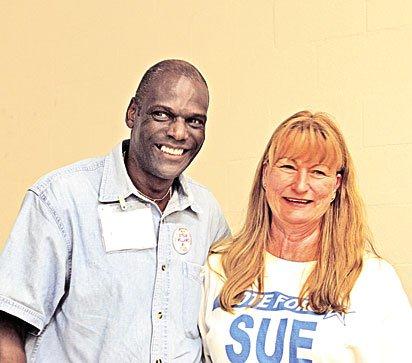A once operational battery plant along U.S. Highway 441 is on the path to annexation by the City of Alachua.
The 146.23-acre site broken up over three tax parcels got approval on first reading from the Alachua City Commission Monday. Although the battery manufacturing facility is considered by many to be in the City of Alachua, the one-time major employment center has never been within the city’s corporate limits.
A concern among city leaders about contamination at the site has long been a major factor in keeping the property outside of the City of Alachua’s boundaries.
About half of the nearly 150 acres is contaminated. City of Alachua Planner Brandon Stubbs said cleanup efforts on the site date back to the 1970s and still continues.
The half of the property now known was Phoenix Commercial Park is said not to be contaminated, but is designated as a “Brownfield site” because of the perception of contamination. That designation lends itself to incentivizing use of the park by companies wishing to take advantage of the already industrialized site.
When asked about pending environmental or legal issues associated with the site, Stubbs and City Attorney Marion Rush said the city would not be taking on the liability by annexing the property.
Mayor Gib Coerper said he wants absolute confidence that annexing the former battery plant site will not lead to a liability for the city in future years.
Meanwhile, Coerper also lauded the Hipp family who purchased and opened a part of the site as Phoenix Commercial Park.
“The Hipp family has done a terrific job of with the Phoenix park,” he said.
General Electric (GE) opened the plant in1963. Years later in the late 1980s, it sold to Gates Energy Products. By 1993, Energizer Battery purchased the plant and property and added additional capabilities such as lithium ion battery cell manufacturing.
Moltech Power Systems purchased the facility in 1999 but went bankrupt about two years later. That was the last major manufacturing the site has seen since much of the original battery production equipment was transferred to a Chinese company which purchased belly-up Moltech Power Systems. The Chinese company was blocked from transferring the $150 million lithium ion plant originally built by Energizer.
The lithium ion manufacturing facility remains at the site today and has since been in use on a smaller scale. In its heyday, Energizer employed nearly 1,500 people at the site.
The annexation was passed in a 5-0 vote of the commission. A second and likely final public hearing on the annexation is set for the city’s Nov. 22 commission meeting.
Other annexations
Commissioners also gave the initial okay for annexation of 225.46 acres known as the Jeffords property. Located across from Santa Fe Ford along U.S. 441, the property is currently zoned as agriculture and would remain that way upon annexation.
An application by 441, LLC to voluntarily annex 17.5 acres into the City of Alachua was also unanimously approved by the commission. The parcel is located along U.S. 441, northwest of the entrance to Turkey Creek. That property is also currently zoned Agriculture under the Alachua County zoning atlas.
All three annexations considered Monday are set to be reviewed at a second public hearing scheduled for the Nov. 22 commission meeting.
Add a comment

 Travis D. Latner
Travis D. Latner
